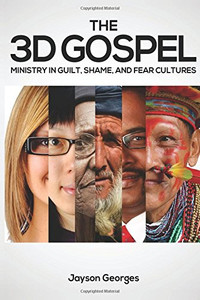

Guilt, Shame, And Fear: Relationality Across Cultures
ISBN13:
9781646695669
$12.78
The research behind this book contrasted the influence of the culture-linked prioritisation of pairings of guilt and innocence, shame and honour, and fear and power. The research was a case study, on this influence with particular reference to the decision-making of leaders in education and other fields in two different sub-cultures located in Bolivia, South America. The research involved a qualitative study of data from interviews with forty-two leaders from a Bolivian city and from rural villages in order to discover worldview and cultural factors that influence the prioritisation of avoidance-pursuit pairs that may affect the ethical decision-making of leaders in different sub-cultures. The distinctive sub-cultures are a Hispanic sub-culture in the city and a primarily Quechua sub-culture in the villages.The affective domain pairs were identified in the literature from work by sociologists, anthropologies and missiologists. In this research the term avoidance-pursuit pair is used and is indicative of the human tendency to avoid the first components (guilt, shame and fear) and pursue the second (justice/innocence, honour and power). The literature suggested that these pairs are ranked differently in contrasting cultures and that this influences the decisions and actions of individuals. This research also investigated worldview and cultural factors that may result in the prioritisation of the avoidance-pursuit pairs. In order to answer the research question, the literature referring to the avoidance-pursuit pairs, leadership, ethical decision-making, values and worldview is discussed. In addition, reference is made to the literature pertaining to cross-cultural studies and in particular to shame-honour, or face cultures, and Andean animistic cultures and worldviews.The data from the interviews with participants found that across each cultural group there are differences between the prioritisations of the pairs. Within the Hispanic culture of the city, the research participants placed a higher priority on shame and honour whereas in the village communities the priority was on fear and power and these prioritisations influenced the decisions and actions of the leaders. In general terms the findings support the theory in the literature. In the data there were also several linked factors such as issues of trust, the values context of the cultures and the relational structures of their communities. Relationships were found to be a key factor in understanding the influences on the decision-making processes and the prioritisation of the avoidance-pursuit pairs. These relationships included interpersonal relationships in the collectivist, Hispanic, culture and strongly influenced perceptions of shame and honour. In the culture of the villages fear and power were linked to perceived relationships individuals had with the supernatural and the natural environment. The relationship individuals may have with lore, or laws, was found also to be important in terms of perceptions of guilt or innocence.
- | Author: Geoffrey Robert Beech
- | Publisher: Lifeworld Education
- | Publication Date: Aug 27, 2019
- | Number of Pages: 217 pages
- | Language: English
- | Binding: Paperback
- | ISBN-10: 1646695666
- | ISBN-13: 9781646695669
- Author:
- Geoffrey Robert Beech
- Publisher:
- Lifeworld Education
- Publication Date:
- Aug 27, 2019
- Number of pages:
- 217 pages
- Language:
- English
- Binding:
- Paperback
- ISBN-10:
- 1646695666
- ISBN-13:
- 9781646695669





